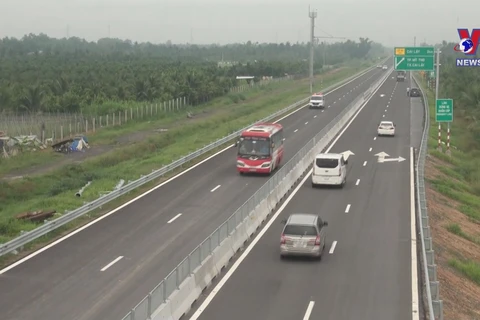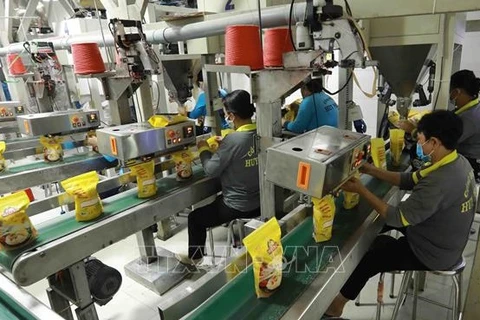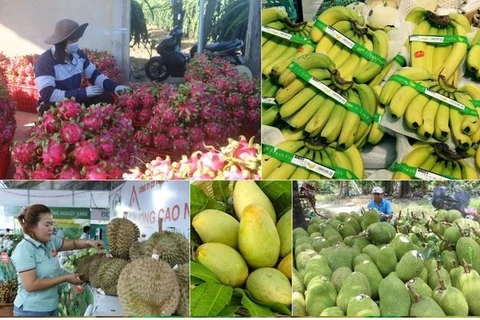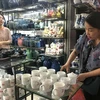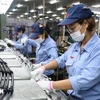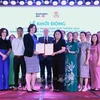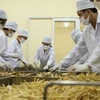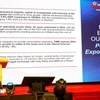Hanoi (VNA) – Participants at a conference in Hanoi on November 23 were provided with updates on commitments to sanitary and phytosanitary (SPS) regulations in free trade agreements between Vietnam and member countries of the Regional Comprehensive Economic Partnership (RCEP).
The event was jointly held by the Vietnam Sanitary and Phytosanitary Notification Authority and Enquiry Point (SPS Vietnam) under the Ministry of Agriculture and Rural Development, and the Hanoi Department of Agriculture and Rural Development.
Ngo Xuan Nam, VPS Vietnam Deputy Director, warned that the violations of SPS regulations will harm not only businesses but also the entire sector and Vietnamese farm produce brands in the international market.
Vietnam has joined 19 trade agreements, both bilateral and multilateral, of them 16 officially signed and three under negotiations.
The event was jointly held by the Vietnam Sanitary and Phytosanitary Notification Authority and Enquiry Point (SPS Vietnam) under the Ministry of Agriculture and Rural Development, and the Hanoi Department of Agriculture and Rural Development.
Ngo Xuan Nam, VPS Vietnam Deputy Director, warned that the violations of SPS regulations will harm not only businesses but also the entire sector and Vietnamese farm produce brands in the international market.
Vietnam has joined 19 trade agreements, both bilateral and multilateral, of them 16 officially signed and three under negotiations.
Notably, the RCEP agreement, which took effect on the first day of last year and comprises ASEAN countries, China, Japan, the Republic of Korea, Australia and New Zealand, sets out many commitments, including those on SPS.
Mentioning China, one of Vietnam’s major agricultural product importers, Lo Xuan Quyet, Chief Representative of the Vietnam Trade Promotion Office in Hangzhou, suggested domestic businesses optimise advantages in geographical location, production and transportation costs and tropical products; follow VietGAP, GlobalGAP and other standards set by the neighbouring country; and enhance food safety and hygiene control to boost exports to the market.
Vietnamese firms need to comply with regulations on product quality, quarantine, packaging, and traceability set by importers, improve their foreign language skills and learn more about foreign markets, he stressed./.
Mentioning China, one of Vietnam’s major agricultural product importers, Lo Xuan Quyet, Chief Representative of the Vietnam Trade Promotion Office in Hangzhou, suggested domestic businesses optimise advantages in geographical location, production and transportation costs and tropical products; follow VietGAP, GlobalGAP and other standards set by the neighbouring country; and enhance food safety and hygiene control to boost exports to the market.
Vietnamese firms need to comply with regulations on product quality, quarantine, packaging, and traceability set by importers, improve their foreign language skills and learn more about foreign markets, he stressed./.
VNA


